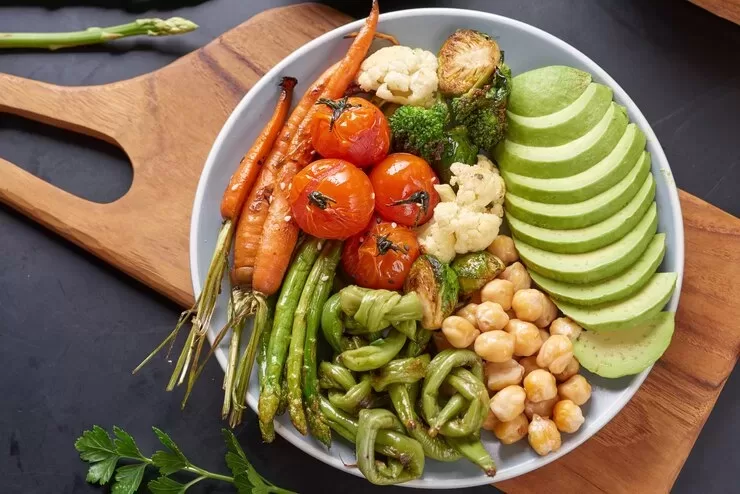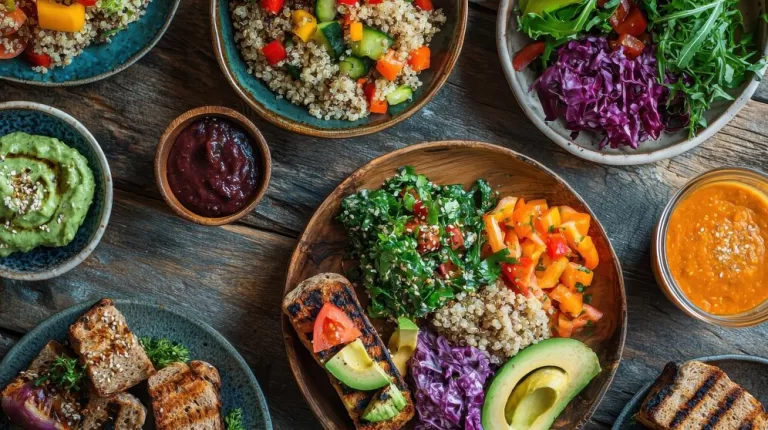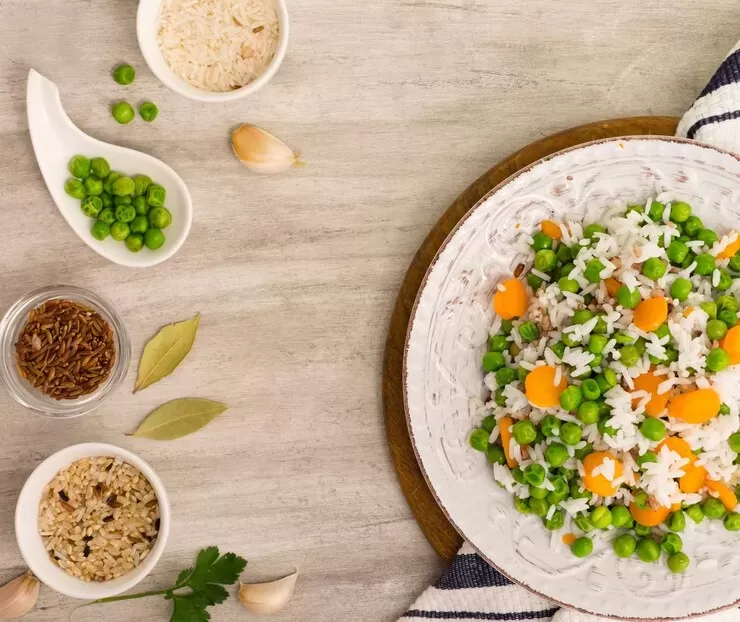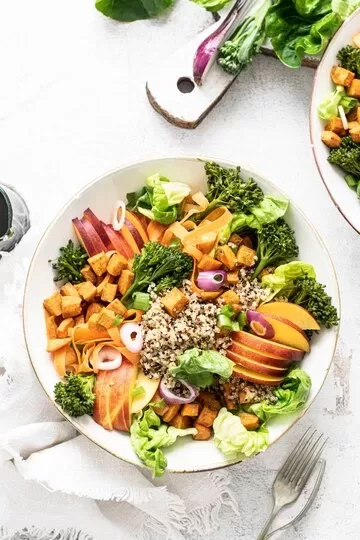Have you ever wondered if there are plant-based alternatives for your favorite meat-based dishes? This article explores the fascinating realm of vegan substitutes, from protein-packed alternatives to egg-free baking hacks.
From dairy-free milk and cheese to meatless burgers and sausages, consumers can now find a plethora of plant-based options that closely resemble their conventional counterparts. This abundance of choices has made it easier than ever for individuals to transition to a vegan lifestyle and incorporate delicious and nutritious plant-based meals into their daily routines.
As the vegan movement continues to gain momentum, it’s becoming increasingly evident that embracing a plant-based diet is not only beneficial for individuals but also for the planet. In response to this rising trend, the food industry has witnessed a remarkable expansion of vegan products, offering a diverse range of alternatives to traditional animal-based ingredients.

Dairy Alternatives
Dairy alternatives have seen a significant surge in popularity in recent years, driven by factors such as dietary restrictions, ethical concerns, and environmental sustainability. These plant-based options offer a healthier and more compassionate alternative to traditional dairy products.
A study published in the Journal of Nutrition found that consuming plant-based milk alternatives, such as almond and soy milk, can be associated with lower cholesterol levels and improved heart health.
Additionally, research from the American Journal of Clinical Nutrition has demonstrated that plant-based yogurt can be a valuable source of probiotics, which support gut health and immune function.
Here are some of the most popular dairy alternatives available in 2024:
- Almond milk: Made from almonds and water, almond milk is a popular choice for its creamy texture and mild flavor. It is often fortified with calcium and vitamin D to match the nutritional profile of cow’s milk.
- Soy milk: Derived from soybeans, soy milk is a complete protein source and is rich in essential nutrients like iron and calcium. It is a versatile option that can be used in various recipes, from smoothies to baking.
- Oat milk: Made from oats and water, oat milk has a slightly sweet flavor and a thick, creamy texture. It is a good source of fiber and is often considered a more environmentally sustainable option compared to other plant-based milks.
- Coconut milk: Extracted from the flesh of coconut, coconut milk has a rich, tropical flavor and a high-fat content. It is often used in desserts and curries, and it can also be used as a base for smoothies and coffee.
- Rice milk: Made from rice and water, rice milk is a hypoallergenic option that is suitable for individuals with lactose intolerance or allergies to nuts. It has a mild flavor and a slightly watery texture.
Meat Alternatives
Meat alternatives have gained significant traction in recent years, driven by concerns about animal welfare, environmental sustainability, and personal health. These plant-based options offer a delicious and nutritious way to reduce meat consumption without sacrificing flavor or texture.
A study published in the American Journal of Clinical Nutrition found that consuming plant-based proteins, such as those derived from legumes and whole grains, can be associated with a lower risk of heart disease and type 2 diabetes.
Additionally, research from the British Medical Journal has demonstrated that reducing meat consumption can have positive implications for overall health and longevity.
Here are some of the most popular meat alternatives available in 2024:
- Tofu: Made from soybeans, tofu is a versatile protein source that can be used in various dishes, from stir-fries to sandwiches. It is low in fat and cholesterol and can be marinated or seasoned to suit different tastes.
- Tempeh: Another soy-based product, tempeh is fermented soybeans that have a firm texture and a slightly nutty flavor. It is a good source of protein, fiber, and probiotics and can be used in a variety of dishes, from salads to burgers.
- Seitan: Made from wheat gluten, seitan is a high-protein option that has a chewy texture and a neutral flavor. It can be marinated or seasoned to mimic the taste of meat and can be used in dishes like stir-fries, kebabs, and sandwiches.
- Beyond Meat and Impossible Foods: These companies offer a range of plant-based meat alternatives, including burgers, sausages, and ground meat. Their products are designed to mimic the taste, texture, and appearance of traditional meat and are popular among both vegans and meat-eaters.
- Lentils and beans: Legumes are a great source of plant-based protein and can be used as a meat substitute in various dishes. Lentils and beans come in different varieties and can be added to soups, stews, salads, and grain bowls.
Egg Alternatives
Eggs are a versatile ingredient used in countless recipes, but for vegans, finding suitable alternatives can be a challenge. Fortunately, there are several plant-based options available that can mimic the binding, leavening, and emulsifying properties of eggs.
A study published in the Journal of Food Science found that flaxseed meal can be a good source of omega-3 fatty acids and fiber, while chia seeds are rich in antioxidants and fiber.
Additionally, an article from Gemma’s Bigger Bolder Baking has demonstrated that aquafaba, the liquid from canned chickpeas, can be used as a natural egg white substitute without compromising the texture and functionality of baked goods.
Here are some of the most popular egg alternatives:
- Flaxseed meal: Ground flaxseeds can be used as a whole egg replacement in recipes like pancakes, muffins, and cookies. It adds a nutty flavor and provides a good source of fiber and omega-3 fatty acids.
- Chia seeds: These tiny seeds can absorb a significant amount of liquid and form a gel-like texture similar to egg whites. They can be used in recipes like vegan mayonnaise, puddings, and baked goods.
- Applesauce: Unsweetened applesauce can be used as a whole egg replacement in recipes like muffins, pancakes, and quick breads. It adds moisture and sweetness to baked goods.
- Aquafaba: The liquid from canned chickpeas can be whipped into a meringue-like texture and used as a substitute for egg whites in recipes like meringues, mousse, and vegan mayonnaise.
- Mashed banana: Ripe bananas can be used as a whole egg replacement in recipes like muffins, pancakes, and quick breads. They add sweetness and moisture to baked goods.
Other Common Substitutes
In addition to dairy, meat, and eggs, there are several other common food items that can be easily substituted with vegan alternatives. These substitutions allow individuals to maintain a plant-based diet without compromising on flavor or convenience.
A study published in the Journal of Nutrition found that consuming maple syrup instead of honey can be associated with a lower risk of obesity and type 2 diabetes. Additionally, research from the American Journal of Clinical Nutrition has demonstrated that plant-based mayonnaise can be a healthier option compared to traditional mayonnaise, as it often contains fewer calories and saturated fat.
Here are some of the most common substitutes for other food items:
- Honey: Maple syrup, agave nectar, or date syrup can be used as a sweetener in various recipes, from pancakes to baked goods. These alternatives offer a natural sweetness without the use of animal products.
- Mayonnaise: Vegan mayonnaise made from plant-based ingredients like tofu, almonds, or cashews can be a delicious and healthy alternative to traditional mayonnaise. It can be used in sandwiches, salads, and dips.
- Whipped cream: Coconut cream or soy cream can be whipped into a delicious and creamy topping for desserts like cakes, pies, and ice cream. These alternatives offer a plant-based option without the use of dairy.
- Butter: Vegan butter made from plant-based oils like coconut or palm oil can be used in various recipes, from baking to sautéing. It offers a similar texture and flavor to traditional butter.
- Cheese: There are a wide variety of vegan cheeses available, made from plant-based ingredients like nuts, soy, or coconut. These cheeses can be used in various recipes, from pizza to sandwiches.
Tips for Successful Vegan Substitutions
Transitioning to a vegan lifestyle can be a rewarding experience, but it may require some adjustments to your cooking and eating habits. By following these tips, you can make the transition smoother and ensure that your vegan meals are both delicious and nutritious.
A study published in the Journal of Nutrition Education and Behavior found that individuals who developed a variety of plant-based recipes were more likely to maintain their vegan lifestyle long-term.
Additionally, research from the American Journal of Clinical Nutrition has demonstrated the benefits of incorporating a wide range of plant-based foods to ensure adequate intake of essential nutrients.
Here are some tips for successful vegan substitutions:
- Experiment and find what works best for you: Veganism is a personal journey, and it’s important to find the alternatives that you enjoy the most. Don’t be afraid to try different products and recipes until you discover your favorites.
- Read labels carefully to avoid hidden animal products: Many processed foods contain hidden animal-derived ingredients, such as gelatin, whey, and casein. It’s essential to read food labels carefully to ensure that all the ingredients are vegan-friendly.
- Utilize online resources and vegan cookbooks: There are countless online resources and vegan cookbooks available to help you with meal planning and recipe ideas. These resources can provide inspiration and guidance as you transition to a vegan diet.
- Join a vegan community for support and inspiration: Connecting with other vegans can provide support, encouragement, and valuable insights. Consider joining a local vegan group or online community to connect with like-minded individuals.
- Don’t be afraid to ask for help: If you’re struggling to find vegan alternatives for certain foods or recipes, don’t hesitate to ask for help. There are many vegan-friendly communities and online forums where you can get advice and support.
By incorporating these simple substitutions and following the tips outlined above, you can easily navigate the world of vegan cuisine and create delicious and satisfying plant-based meals.
For even more inspiration and guidance on your vegan journey, explore the vast collection of recipes and informative articles available on our site! With its comprehensive resource library and focus on delectable plant-based creations, we can be your one-stop shop for all things vegan.
FAQs
What are vegan substitutes?
Vegan substitutes are plant-based alternatives to animal products. They include options for meat, dairy, eggs, and other ingredients commonly found in traditional diets.
Is there a vegan alternative for everything?
While there are vegan alternatives for many traditional ingredients, it’s important to note that not every animal product has a direct one-to-one replacement. However, with a bit of creativity and experimentation, you can find suitable vegan substitutes for most recipes.
Are vegan alternatives healthy?
The healthfulness of vegan alternatives can vary depending on the specific product and its ingredients. Many vegan options are made with whole, unprocessed foods and can be highly nutritious. However, it’s essential to read labels and choose products that are low in added sugars, unhealthy fats, and excessive sodium.
What are the best vegan alternatives to dairy?
Almond, soy, oat, coconut, and rice milk are common options. Soy, coconut, and almond yogurts are available in various flavors. There are a wide range of vegan cheeses made from nuts, soy, and other plant-based ingredients. Vegan butter is often made from coconut oil or plant-based fats.






